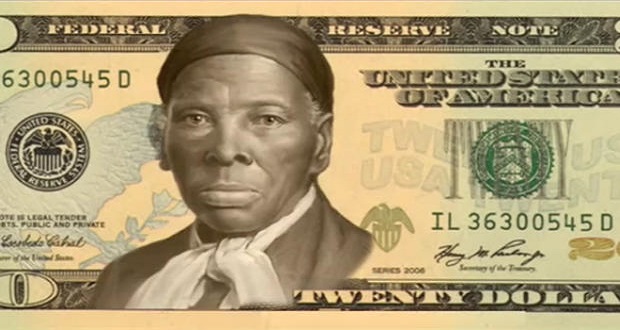
Nothing against Andrew Jackson, but he’s probably not worth $20—that is, if Luis Gutiérrez gets his way. Last week, the Democrat Congressman from Illinois introduced the “Put a Woman on the Twenty Act,” a bill to replace President Jackson with a female on the $20 note.
The last time a female appeared on paper currency was briefly during the 19th century, when Martha Washington graced the $1 silver certificate. Since then, our paper currency has lacked any estrogen.
“Recognizing and celebrating the significant contributions of women throughout American history on U.S. paper currency makes a powerful statement to my daughters and to young women across this country and to people across the globe who look to America as an example of inclusion and equal rights,” said Gutiérrez. “As the most used currency in international transactions, billions will see our values and freedoms in the course of daily financial transactions in every corner of the world.”
I’ll give Gutiérrez a pass for his overdramatic rhetoric that seeing a woman’s portrait on a bill as you pass it to a cashier will remind someone about an American ideal other than the pursuit of capitalism. Still, he makes a good point about increasing diversity on our currency.
The Congressman was inspired by “Women on 20s,” a nonprofit grassroots group with the mission to put a woman on our paper currency. The organization recently conducted a 10-week online poll that allowed people to choose from 15 American women to put on the $20 bill. After more than 350,00 people cast about 600,000 votes, slave abolitionist Harriet Tubman came out on top. (Check out how other candidates, including Eleanor Roosevelt and Rosa Parks, scored.) Women on 20s has since petitioned Obama to instruct the Treasury to replace Jackson with Tubman before the 100th anniversary of women’s suffrage in 2020 (hence, why they chose the $20 bill).
“She was an agitator. She was a subversive. She used the tools of social change to improve America,” said Gutiérrez about Tubman. “She fought for the little guy against the strong guy. And she was willing to put herself at great risk to ensure the justice for others. And she was a woman and she was black. In other words, she is an ideal American.”
Now, perhaps you’re thinking: Is this really important? But that’s only because you’re a male and you’re not black (like Tubman).
Actually, this is really important. That a given individual appears on our currency is an honor, a pretty rare one given our limited denominations. Printing Tubman on our cash would not only salute her work but would send a message that this country values groups other than white males.
Naturally, not everyone wants Tubman’s face as money’s newest face. Opposition, in fact, has come from some unexpected sources. In The Washington Post, writer Feminista Jones, herself black, argues that there’s “no place for women—especially women of color—on America’s currency today.” On one hand, Jones concedes that replacing Jackson, “a man whose wealth was made on the backs of enslaved black people,” with Tubman would be quite the reversal of fortune. However, Jones also claims that Tubman disdained the U.S. economic system, “so making her a symbol of it would be insulting.” Worse, it would lure people into the belief that the nation has overcome racism and sexism.
All of which is a bunch of gibberish veiled under a pseudo academic guise. It’s akin to urging Americans not to vote for Hillary Clinton or Carly Fiorina because a female presidency would force us to overlook that women still make less on the dollar then men. Or that electing a black president might confuse our thoughts about race issues. What race problems?
The bottom line is that putting a woman on a $20 is about as likely to exacerbate problems as it to solve them. And so ultimately, we should not be asking why we should put a female on our currency? Rather, we should ask why not?
If we can’t answer that with a good explanation, then I think we have our answer.

















